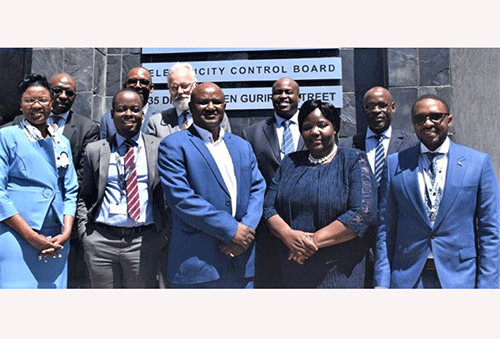Although the Electricity Control Board (ECB)’s financial position remains relatively sound, the institution’s levy income continues to decrease due to a significant slowdown in economic activities. This deterioration of economic activities remains a concern for ECB revenue in the future.
This is according to a statement by ECB board chairperson Gottlieb Hinda, in the 2021 annual report tabled in parliament last week.
While it is anticipated that economic activities will recover in the near future, Hinda nonetheless said ECB continues to employ necessary strategies to ensure financial sustainability in the short, medium, and long-term by monitoring its financial position and forecasting expenditure.
During the period under review, the ECB income amounted to N$86.4 million. This represents a decrease of 7.75% from the N$93.7 million recorded in the previous financial year.
The ECB’s main source of revenue is levy income. These levies are charged on volumes of electricity supplied by NamPower and licensed embedded and isolated generators.
According to the report, the ECB levy charge per kWh remained the same for the 2020/2021 financial year. The actual volumes of electricity supplied, however, decreased by 10.3% compared to the previous financial period.
“The reduction in electricity units sold emanates from the prevailing decrease in economic activities, which are primarily attributed to the impact of Covid-19. Another contributing factor is the increase in the generation of electricity for own consumption by customers, e.g. solar rooftops, which is not subject to the ECB levy,” reads the report.
Other income for the period under review was derived mainly from interest earned, licence fees, and rentals earned on the former ECB office building.
Looking into the future, the ECB’s financial position remains sound but the reduced electricity consumption levels are not expected to recover at a fast enough pace given the prevailing economic downturn which remains a concern for the ECB’s future revenue projections.
According to the report, a review of existing financial policies will be undertaken to ensure an adequate response to ECB’s growing operations.
Furthermore, the report confirmed the installed generation capacity in the country has grown significantly over the past few years due to an increase in the installation of renewable energy power plants.
The report added that revenue collected from the transmission local end-consumers declined over the past two years.
“The decline can be mainly due to the transmission sector that over recovered due to the tariff setting, while generation under recovered, which is now rectified, hence not necessarily a decline in revenue,” the ECB explained.
Transmission revenue is exclusively generated, excluding exports, from local end consumers such as distribution entities, mines and others. The total revenue for transmission local end-consumers decreased by 9.1%, from N$1.5 billion in 2019 to N$1.3 billion in 2020. -mndjavera@nepc.com.na



